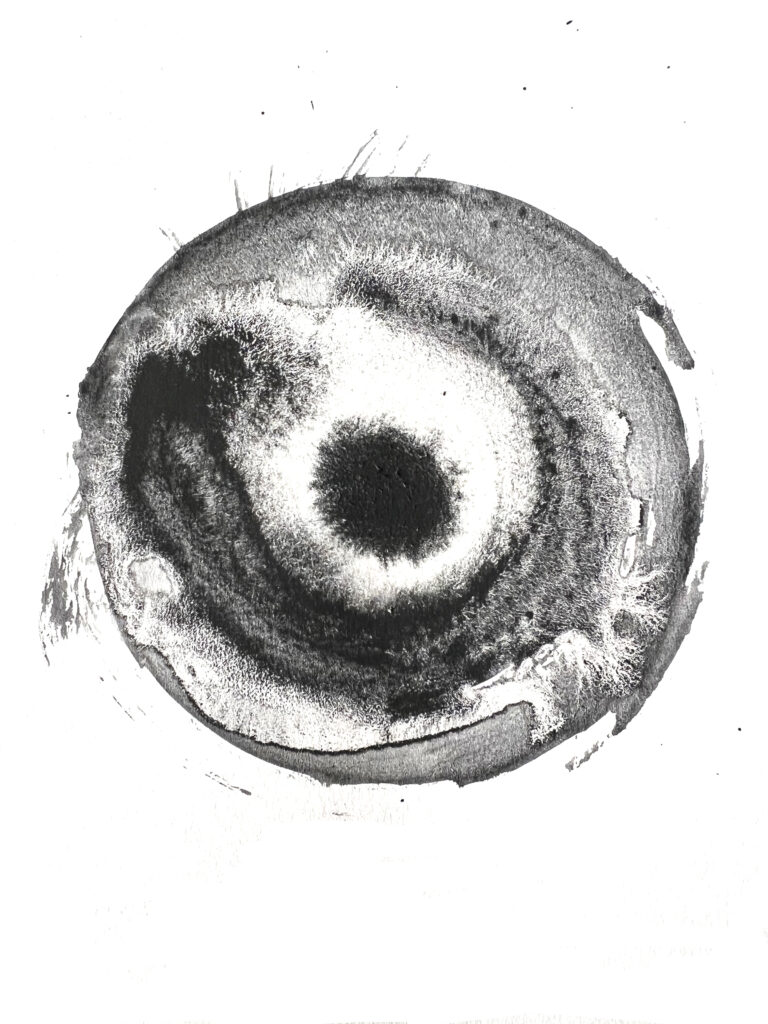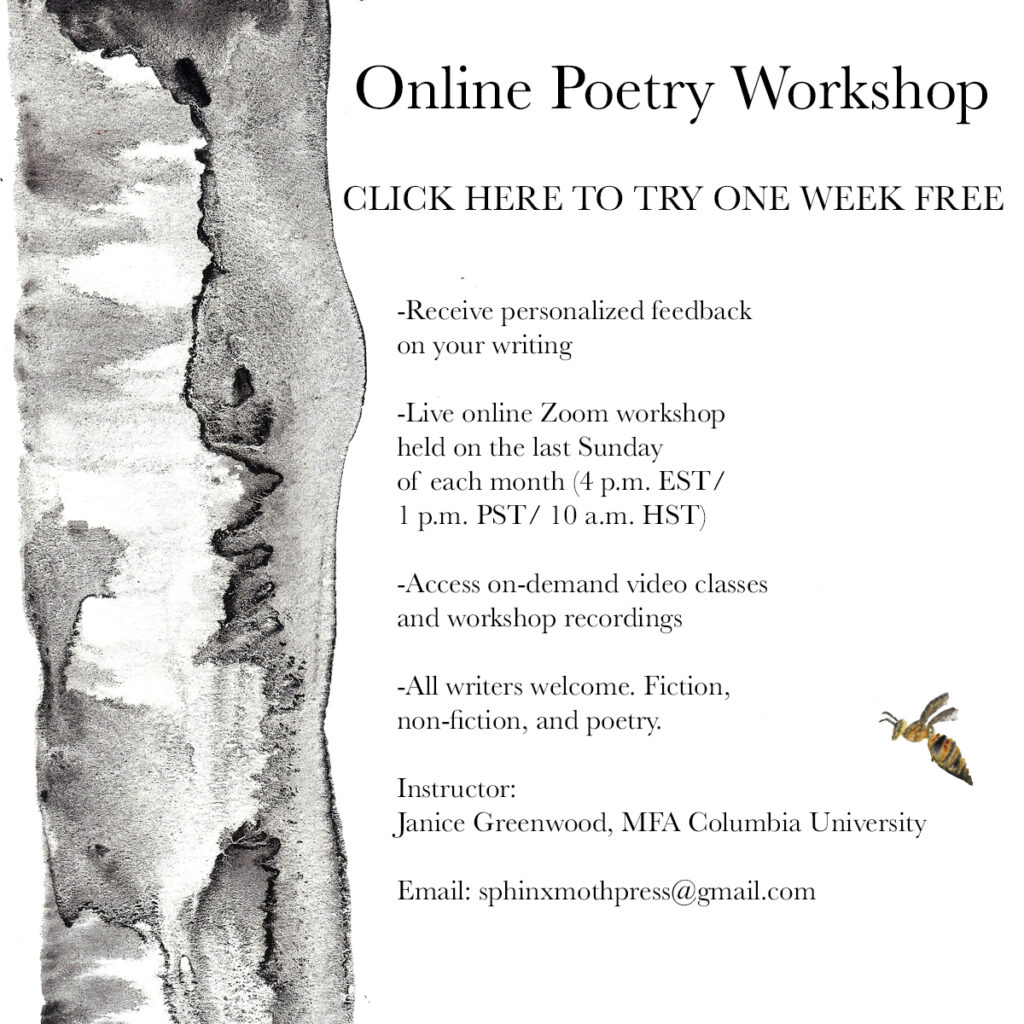There are few professions that require nothing more than a pen, paper, and a writing desk. Emily Dickinson’s writing desk was no larger than a microwave. In the same space it takes to pop a bag of popcorn, Dickinson traveled with death, chatted with God, saw the infinite in a bird. Something should be so easy as learning how to start an essay given the low cost of admission, and yet, taking the first step, or writing the first word, or making the first attempt can feel downright impossible. Every journey begins at home, and sometimes home can be a foreign country, even to oneself. I marvel at my own blind spots when I finally see them. True knowledge ought not to be the exploration of somewhere else, but the discovery of the somewhere else right here. But imposter syndrome is real. Access to the blank page is relatively easy but inhabiting the space as if it were one’s own, much harder. In her new book, Body Work, Melissa Febos writes, “Writing is a form of freedom more accessible than many and there are forces at work that would like to withhold it from those whose stories most threaten the regimes that govern this society. Fuck them. Write your life.”
Amen, sister.
Starting an essay can be a subversive act. But why is it that when I’m telling my truest truths, I suddenly find myself a little seasick, which is to say, I suddenly find the Melvillian Ishmael in me “growing grim about the mouth” and I know it’s time to get myself to the ocean. Writer’s block is an easy enough excuse to go surfing. To this excuse, Melissa Febos writes: “I don’t believe in writer’s block. I only believe in fear.”

The word “essay” originally meant “trial” or “attempt.” An essay is not so much a complete expression of the truth, as an attempt to arrive at truth through the doing. In this manner, a good essay doesn’t know its conclusions when it begins.
Perhaps this is why nothing is so difficult as beginnings.
In Body Work, Febos writes about the power of writing her secrets and she urges her readers to tell her theirs. “Tell me about your rape. Tell me about your mad love affair… Tell me about your hands, the things they have done and held and hit and let go.”
But, before you begin, never underestimate your own desire to please others before yourself.
Here’s me: I was a compliant girl, but a devil inside. When I became a teenager, I became a compliant girlfriend, rotten from the things I put in my mouth and the things I didn’t let out. Then I was a compliant wife, loyal but not to myself. One day, I decided to not be compliant anymore, but that didn’t last for long. I still fight my own desire to please. When I’m writing, I find that the figure I’m often trying to please is some old white male university professor, but in my daily life the figure shapeshifts.
If you ask me how to start an essay, I’d echo my wonderful teacher Susan Shapiro and say, start with shame, start with your most embarrassing story. I’m 37 years old and only starting to write it.
In Body Work, Febos writes that when establishment critics denigrate trauma narratives, or essays about violence, abuse, disempowerment, sexual aggression, harassment, or racism, “they are picturing women” writers. Febos explains that telling a true story “might free me from shame and replace the onus of change onto the society in which we live.” And “those who benefit from the inequalities of our society resist the stories of people whose suffering is in large part owed to the structures of our society.”
In other words, saying the unsayable is a political act, and a necessary one.
Start here. Tell a secret. Write your most shameful thing. Test your thinking. Weigh your evidence. Take a long hike, and gesture at conclusion with surprise, and awe, and perhaps a little exhaustion. To start an essay is less a matter of finding the right anecdote or rhetorical question, but rather, to begin with uncertainty. But uncertainty isn’t enough. Uncertainty is epistemology. Shame lives in its heart.
An anecdote is not a catchy hook to draw in the reader. The reader, after all, isn’t a fish. Instead, an anecdote places the reader inside the midst of the mystery that the essay attempts to resolve through mastery. Context that situates the reader is less a history lesson than it is the attempt to find solid ground or common ground where there may be no ground to begin with.
And so, an essay on the infinite might therefore begin with a description of home. An essay on home might begin with a description of the infinite cathedral of the universe.
Writers are omnivorous creatures. We digest the whole world. We read voraciously. We also go out into the wilderness and observe the changing tides and swells, marvel at the forceful movement of wind through the valley, and study the movements of a gecko.
What I love about Febos’s writing is her ability to include so much within it.
She remains open to interruptions, to digression, to the accidental discovery that tilts the table and knocks over the cup of tea, blotting out the words.
An essay must remain open to the awkward and dangerous conversation, to new rooms, and to new trails, and the blisters they leave on the feet.
Febos writes that the “power of secrecy could become a prison.” But writing cannot be merely a payment plan to leave the debtor’s prison of lies.
The essay is not an accountant’s ledger. It does not add up sentences with a bottom line in mind. The poem whose end can be seen from the start is a road too well traveled to be worth recording and so it is with the essay. Febos’s writing in Body Work rings true because we discover the truth alongside the writer.
Can the essay live in a world of devices and algorithms? In a world where every entertainment and curiosity is curated to titillate our obsessions and desires? Can the essay survive in a world where our devices offer every alluring social connection with a simple scroll, the whole history of film at our fingertips, every great play or poem or novel ever written, available for a single click on the Amazon of ideas? It is a marvel and a miracle writers find time to write at all. It is a marvel and a miracle readers find time to read. In a world where everything is available, nothing can be known. The writer of the essay makes a choice and decides to stop and know. An essay must be rooted in specificity.
To start an essay is a radical act of resistance against the attention economy, the easily defined algorithm, the palace of addiction and easy dopamine. It is resistance against the forces that would keep us oppressed and distracted. In Body Work, Febos writes: “resistance to memoirs about trauma is always in part—and often nothing but—a resistance to movements for social justice.”
To start an essay rooted in the present or what we know to be true about the past forces us to reckon with the truth of the here and now, where we have been, and where we may be going. An honestly written essay forces us to find sufficiency in ourselves and honor our need for connection to one another. We must face our darkest days and bring them to the light or else die in darkness. How to start an essay? Begin in uncertainty and walk toward the light.

About the Writer
Janice Greenwood is a writer, surfer, and poet. She holds an M.F.A. in poetry and creative writing from Columbia University.
